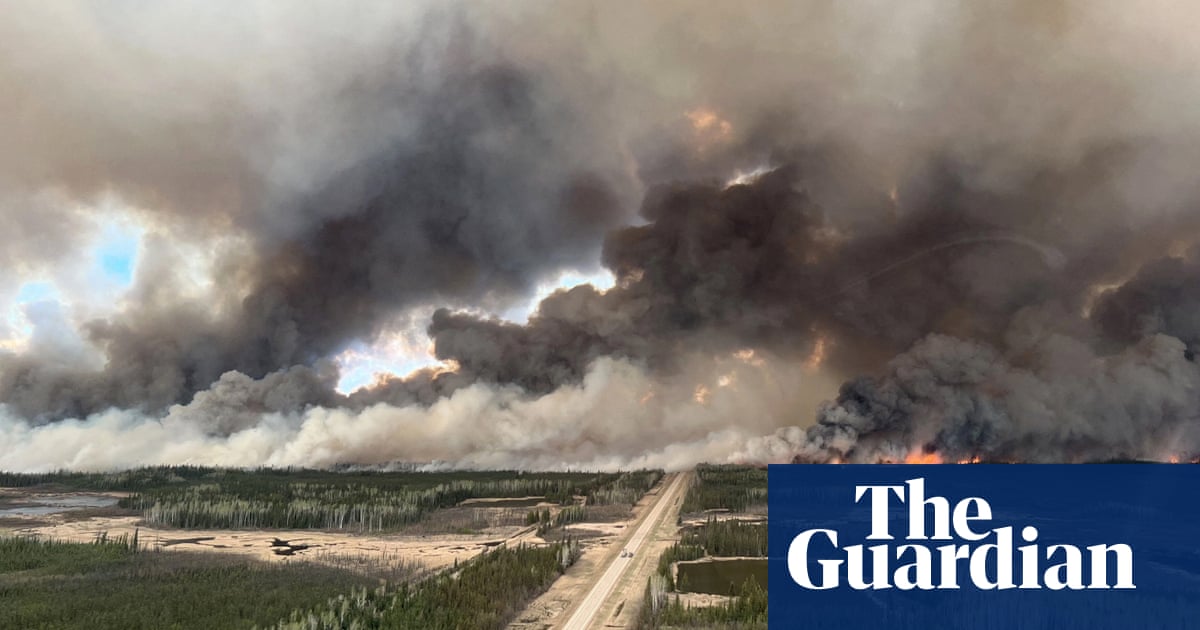Indigenous land is disproportionately affected by wildfire and their isolated nature makes aid access difficult
When Robert Laboucan pictured his son taking his first steps he imagined it would be at home, maybe even in front of a camera in their living room. Instead, the one-year-old first walked in the hallway of the Flamingo Inn in High Level, the tiny Alberta town where the family have been living for more than a year after escaping the massive wildfires that devastated the Indigenous-owned Fox Lake Reserve.
“It was really hard,” said Laboucan, a member of the Little Red River Cree Nation.
Laboucan, his partner Jennifer, and their five children, aged one-16, are among dozens of fire evacuees still living at the hotel. While they will not get an exact replacement of the home they lost, Laboucan has been told that a new home will be ready for the family by July – approximately 14 months after the 2023 Paskwa fire tore through the Little Red River Cree Nation.
Last year saw Canada’s worst wildfire season ever: 6,132 blazes erupted across the country, destroying 16.5m hectares of land, according to Statistics Canada. A thousand of the fires broke out in Alberta.
And a year later, as Canada braces for another hot summer, many Indigenous communities in the northern parts of the western provinces are still displaced.
“It’s a pretty substantial challenge, actually, for our establishment,” said Flamingo Inn manager Tyceer Abou Moustafa. “At the beginning our suppliers didn’t have enough stock on hand to even maintain feeding the people. So that was a pretty hard challenge of finding new suppliers and new people who could keep up with what we needed.”
Research has shown that Indigenous land in Canada is disproportionately affected by wildfires. A 2019 study from the Journal of Disaster Risk Reduction found that 80% of Indigenous communities are located in fire-prone regions. Matters are further complicated by the isolated nature of many communities which are often outside the jurisdiction of local firefighters and lack infrastructure such as all-weather roads.
A tight-knit community of just over 2,000 people, Fox Lake sits in the forest along the south side of Peace River. After the spring thaw, access is only possible by water.
On 2 May, the blooming Paskwa wildfire drew closer and the population scrambled to evacuate. Residents were told they had just 30 minutes before the flames reached the ferry landing and were urged not to take anything except their families and essentials.


